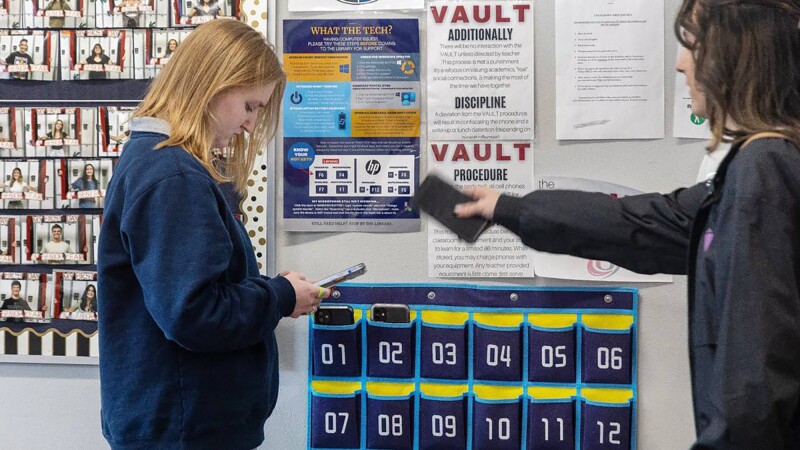Schools across the United States have long enforced gun-free policies, and recent findings suggest it may be time to implement cellphone bans as well. A study released by the National Bureau of Economic Research in October 2023 examined the effects of Florida’s two-year-old cellphone ban in schools, led by David Figlio, a professor at the University of Rochester, and Umut Özek, a senior economist at the RAND Corporation.
Florida’s education data is particularly valuable, as the state conducts student assessments three times a year and tracks daily disciplinary actions. This rigorous data collection allowed researchers to analyze the immediate and long-term impacts of the cellphone ban.
In the initial month following the ban’s enforcement, schools experienced a significant rise in suspensions. The study found that the suspension rate more than doubled compared to the month prior, and was 25 percent higher than the same month in the previous school year. Notably, Black students and male students faced a disproportionate share of disciplinary actions. These findings initially led some to suggest that cellphone bans could worsen the school-to-prison pipeline issue.
Yet, the research reveals a more nuanced picture. By the second year of the ban, the spike in disciplinary rates had largely subsided. The authors suggest that students quickly adapted to the new rules after testing the enforcement of the ban. Once they recognized that school administrators were serious about the policy, they modified their behavior accordingly.
Students often adjust their actions based on anticipated consequences. If enforcement is lax and empathy for rule-breakers prevails, students may become more unruly, as observed in some schools in Nevada. This scenario poses risks not only to students but also to staff members.
Ultimately, the cellphone ban in Florida led to enhanced student learning outcomes. The researchers noted significant improvements in test scores during the second year of the ban, particularly among male students and those in middle and high school. The ban also correlated with a decline in unexcused absences, suggesting that limiting cellphone use helped to increase student engagement.
In light of ongoing discussions surrounding school funding, this study underscores the importance of policy in driving student achievement. The Clark County School District in Nevada has instituted cellphone restrictions, yet anecdotal evidence indicates inconsistent enforcement. A more rigorous application of these policies could yield positive results, similar to those observed in Florida.
As the remaining school districts in Nevada consider similar measures, they would benefit from taking a page from Florida’s playbook. By enforcing cellphone bans effectively, schools can create an environment conducive to learning and improvement for all students.
